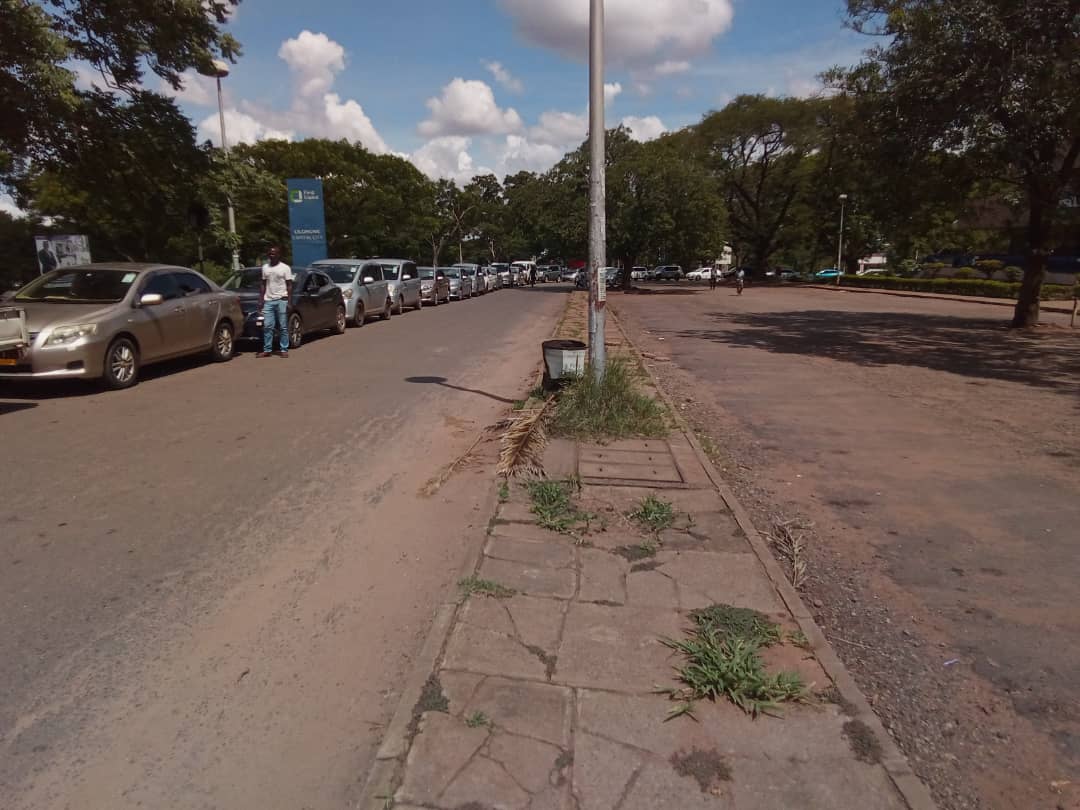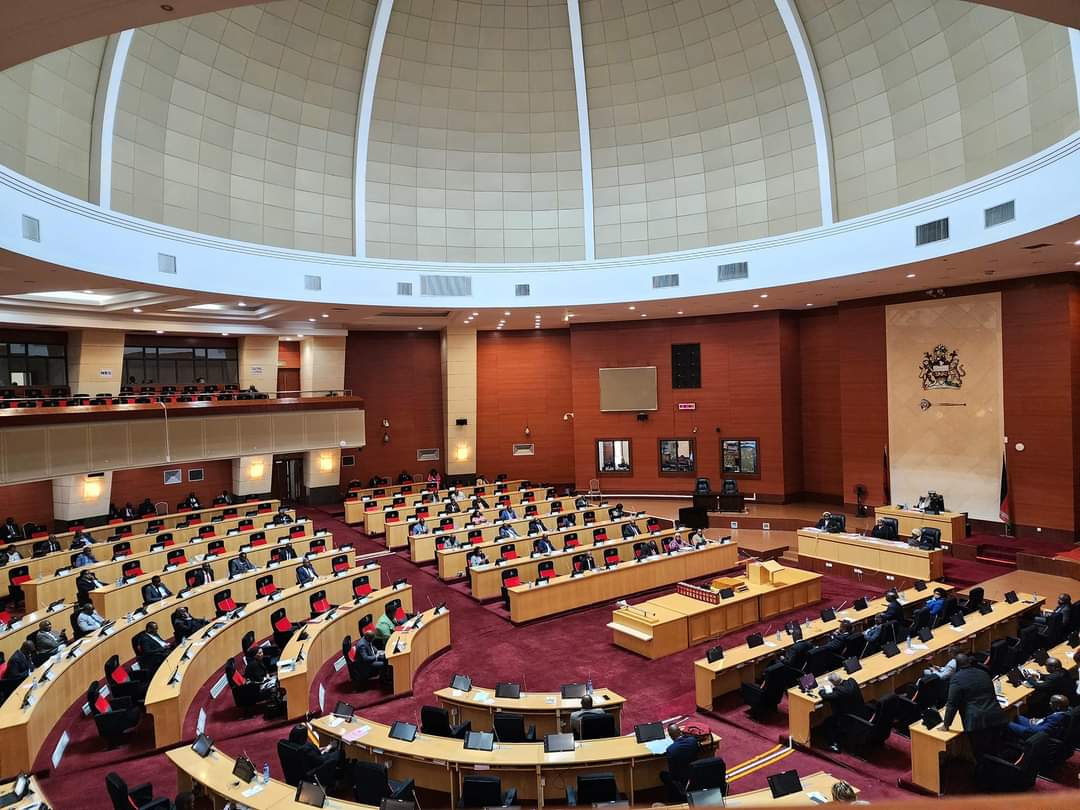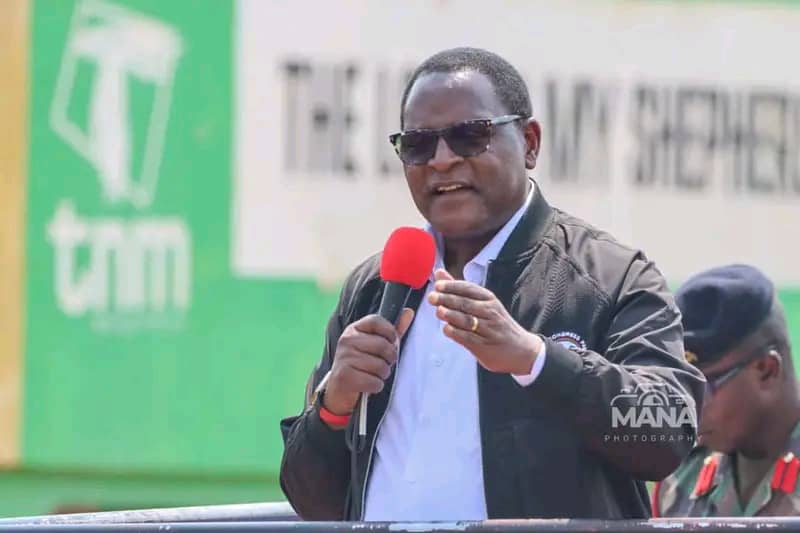By Burnett Munthali
As the sun rises over City Center Lilongwe, the sight of endless queues of vehicles winding through the streets has become a daily ordeal for many Malawians. Drivers, with frustration etched on their faces, wait for hours, sometimes days, hoping to fill up their tanks at the few stations with fuel. The ongoing fuel shortages have created a crisis that is crippling daily activities, business operations, and the nation’s economy.
The queues, stretching for kilometers, reflect a dire situation that has gripped the heart of Malawi. These lines are not just filled with cars but with stories of desperation and resilience. Taxi drivers, office workers, business owners, and private car users alike sit idle in their vehicles, anxiously watching as the limited supply of fuel dwindles before their turn comes.
The fuel crisis has been building for months, attributed to a combination of foreign exchange shortages, logistical challenges, and alleged mismanagement. While government officials have repeatedly assured the public of impending resolutions, the situation only seems to worsen. Filling stations now resemble battlegrounds, with arguments breaking out among drivers as tempers flare.
“The wait is unbearable,” said a visibly frustrated driver, who identified himself as David. “I’ve been here since 4 a.m., and it’s already 2 p.m., yet I haven’t moved an inch. I am losing income because I cannot run my taxi business without fuel.”
Many others echoed his sentiments. A businesswoman, struggling to keep her vehicle running to deliver goods, explained how the shortage was threatening her livelihood. “This isn’t just about fuel; it’s about survival. Without fuel, I cannot earn money to feed my family,” she said.
The long hours spent in queues are taking a toll on people’s physical and mental well-being. Exhaustion, dehydration, and frustration are common as people brave the scorching sun or cold nights, refusing to leave their spots for fear of losing their turn.
“I’ve had to sleep in my car several times this week,” lamented a truck driver who was waiting to fill up for a long-distance trip. “It’s not just the lost time; it’s the uncertainty of when this will end.”
The crisis has also seen an increase in the exploitation of desperate motorists. Black market fuel prices have skyrocketed, with vendors selling petrol and diesel at more than double the official rates. Those who cannot afford these inflated prices are left with no choice but to endure the grueling wait.
The ripple effects of the fuel crisis are being felt across all sectors of the economy. Transportation costs have surged, leading to higher prices for goods and services. Small businesses that rely on transport are struggling to stay afloat, while large corporations face logistical challenges in distributing products.
Public transport has also been severely affected, with minibuses reducing their trips due to fuel scarcity. This has left commuters stranded or forced to pay exorbitant fares.
“This crisis is a reflection of deeper economic issues,” said economist Dr. Emily Kambale. “The shortage of foreign exchange is a major factor, as Malawi relies heavily on imports for fuel. Without addressing these structural problems, the situation will persist.”
The government has come under intense criticism for its handling of the fuel crisis. While officials have attributed the problem to global factors, such as rising fuel prices and supply chain disruptions, many citizens believe the crisis is rooted in poor governance and lack of foresight.
President Lazarus Chakwera recently announced measures to address the issue, including negotiating with fuel suppliers and securing foreign currency to facilitate imports. However, these promises have done little to ease public frustration.
“We are tired of words without action,” said a motorist who had been in line for over 12 hours. “We need solutions, not excuses. How long must we suffer like this?”
Experts agree that resolving the fuel crisis will require both short-term and long-term strategies. In the immediate term, securing adequate foreign exchange reserves to pay for fuel imports is critical. Long-term solutions include investing in alternative energy sources, improving local fuel storage capacity, and diversifying the economy to reduce dependence on imported goods.
The Public Affairs Committee (PAC) has also called for urgent dialogue between the government, private sector, and other stakeholders to address the crisis. Civil society organizations have joined the chorus of demands for transparency and accountability in managing the country’s fuel supply chain.
As the queues in City Center Lilongwe grow longer by the day, Malawians are showing remarkable resilience in the face of adversity. However, this endurance has its limits. The frustration and suffering caused by the fuel crisis underscore the urgent need for decisive action.
Until then, the sight of winding queues will remain a painful reminder of the challenges the nation faces—and the unyielding hope that better days lie ahead.
Burnett Munthali is a political analyst and writer with a keen interest in economic and governance issues in Malawi.




